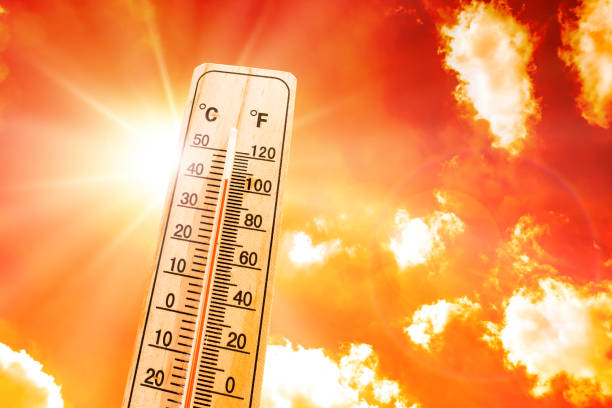Abstract
This paper assesses Indian heatwaves, their effects, and global implications. Prolonged extreme temperatures during heat waves pose several challenges. India, susceptible to climate change, tackles this via Heat Action Plans and promoting renewable energy. The study delves into heat wave impacts, including links to floods, earthquakes, and landslides, highlighting weather event interconnections. India’s global role in countering heatwaves is analyzed, emphasizing involvement in agreements like the Paris Agreement, International Solar Alliance, and climate funds. The paper suggests practical measures to safeguard India’s resources, urging action to protect vulnerable communities and ecosystems. The study concludes that combined efforts, locally and internationally, are vital for adapting to heatwaves and ensuring well-being in a warming world.
Introduction
In the scorching summer sun, heat-waves have created major issues, pushing people into humid environments testing human endurance. These episodes of unbearable heat, impacts vast regions, causing major discomfort, health risks, and consequences related to the environment. During a heat wave, temperatures rise above the seasonal norms and persist for days or weeks.
Heat-waves usually take place when a high-pressure system settles over an area, trapping warm air beneath it. This stagnant air mass hinders the dispersion of heat and prevents cooler air from moving in, leading to a relentless build-up of temperature. Intensity and duration of a heat wave can vary at large. Factors affecting it could be geographic location, climate patterns, and local topography.
The consequences of heat waves are varied. The liable populations such as elderly, children and those with pre-existing medical conditions are at higher risk due to the effects posed by the extreme heat waves. Heat-related issues, such as heat exhaustion and heatstroke, have peaked during these extreme occurrences. Additionally, heat waves can exacerbate air pollution, strain energy resources, and trigger wildfires, further compromising public safety and ecological stability.
Escalating climate change fuels persistent, severe heat waves. Rising global temperatures, due to greenhouse gasses, worsen these events. Combating their impact demands proactive steps like emergency plans, urban cooling strategies, and sustainable practices. Society’s determined efforts are essential to ensure community well-being amid escalating heatwave challenges.
“India has committed to achieving seventeen United Nations Sustainable Development Goals (SDG), including no poverty, good health and well being, and decent work and economic growth. However, current climate vulnerability assessments may not fully capture how Heat Waves linked to Climate Change may impact SDG progress.”
With the progression of rapid climate change, the history of heatwaves serves as a vivid reminder to safeguard vulnerable communities and ecosystems from the risks possessed by the heat waves, it is urgently necessary to reduce their consequences and put adaptation methods into place.
Formation of Heatwaves
Heatwaves, extended periods of unusually high temperatures often accompanied by high humidity, profoundly affect society across multiple sectors. These impacts encompass human health, the environment, and the economy. This paper delves into these ramifications. Examining the factors underpinning heatwave formation is crucial, including high-pressure systems, atmospheric blocking, heat domes, and climate change, necessitating an understanding of the atmospheric and meteorological mechanisms driving such extreme weather phenomena.
Click Here To Download The Paper


📌Analysis of Bills and Acts
📌 Summary of Reports from Government Agencies
📌 Analysis of Election Manifestos

